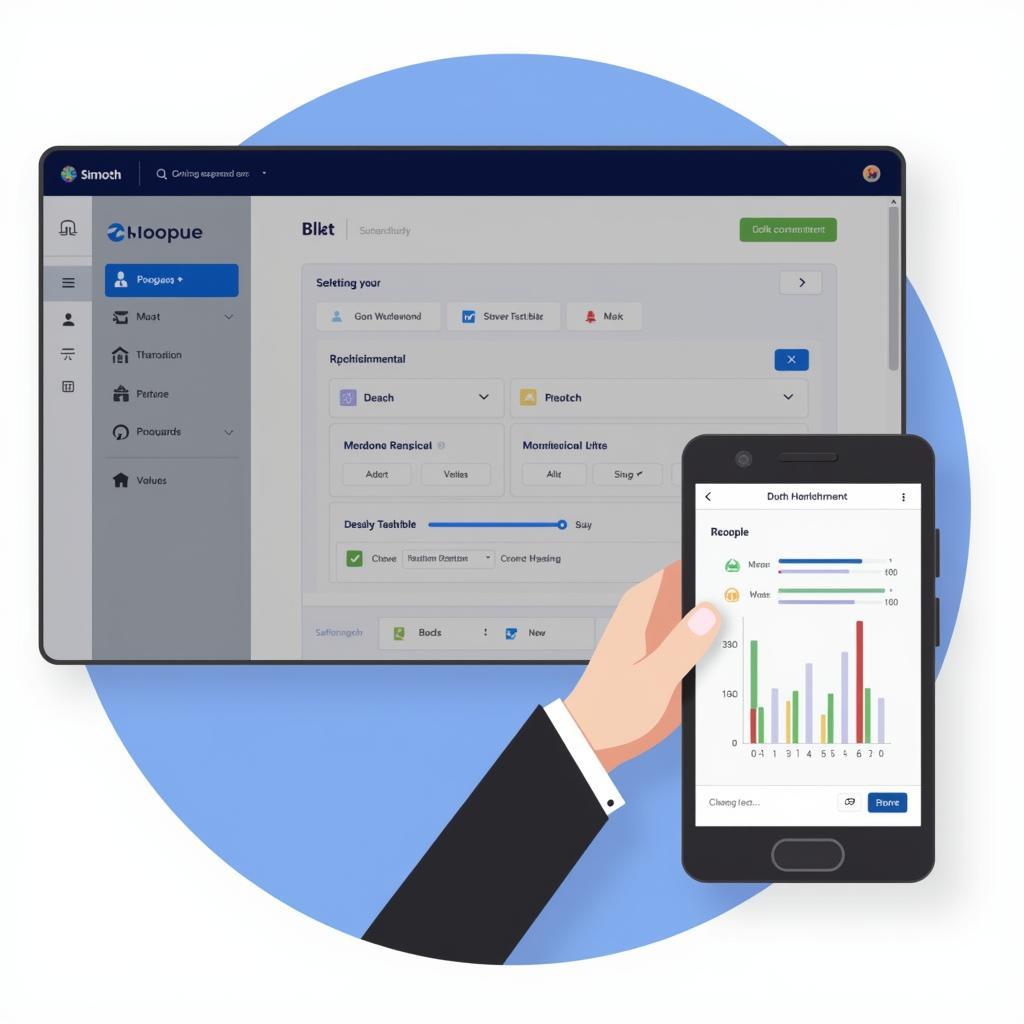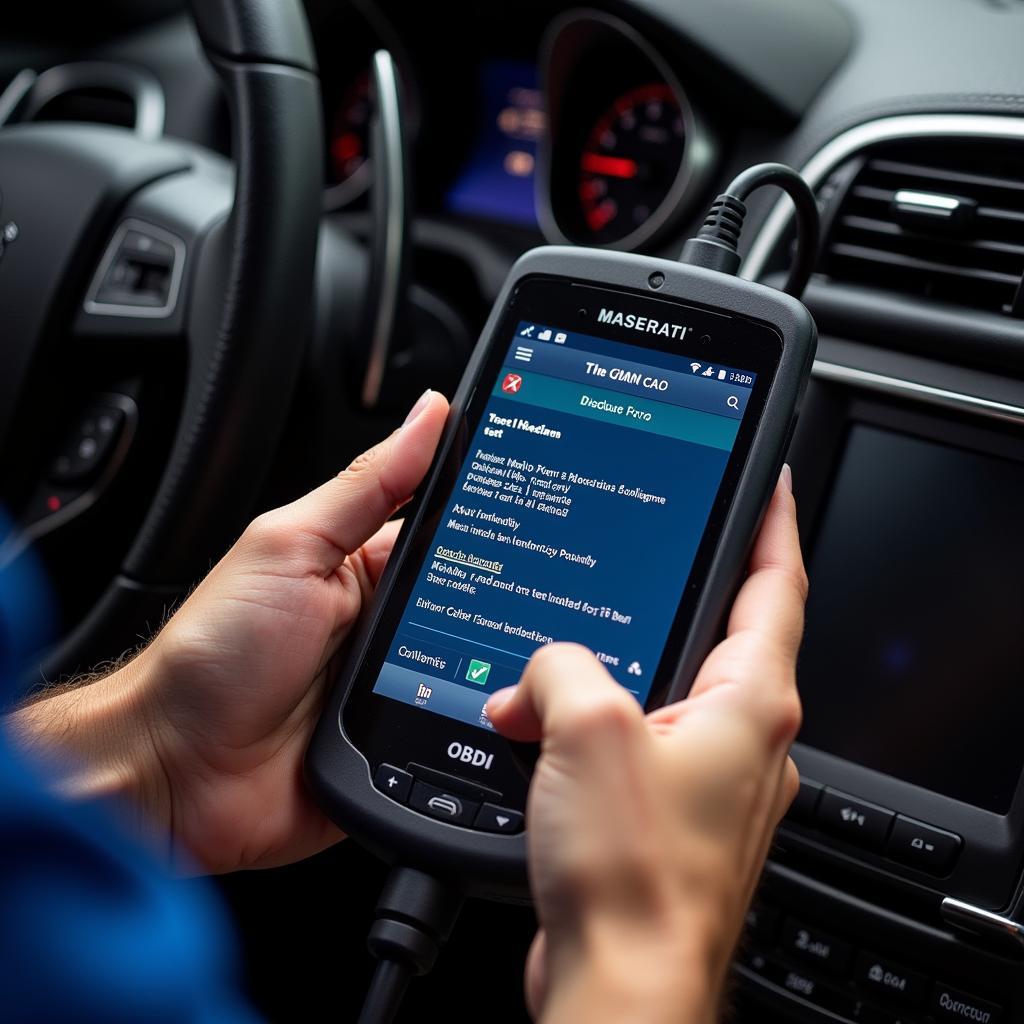Diagnostic Tools Rpc (Remote Procedure Call) are revolutionizing how we troubleshoot vehicle issues. These tools offer unprecedented access to vehicle data, allowing mechanics and technicians to pinpoint problems with greater accuracy and speed than ever before. In this comprehensive guide, we will delve into the world of diagnostic tools RPC, exploring their functionalities, benefits, and how they are transforming the automotive repair landscape.
Understanding the Power of Diagnostic Tools RPC
Diagnostic tools using RPC protocols allow for a more sophisticated and interactive diagnostic experience. Instead of simply reading error codes, these tools can actively communicate with various vehicle systems, enabling technicians to perform complex tests and gather detailed data. This level of interaction provides a much deeper understanding of the underlying problems, leading to more effective repairs.
What exactly is RPC? Imagine it as a conversation between your diagnostic tool and the car’s computer. The tool sends a request (the “call”), the car’s computer processes it and sends back a response. This back-and-forth communication allows for dynamic data retrieval and manipulation, making diagnosis more precise and efficient.
Benefits of Using Diagnostic Tools RPC
The advantages of incorporating diagnostic tools RPC into your workflow are numerous:
- Increased Accuracy: Pinpoint the root cause of problems quickly and efficiently.
- Reduced Diagnostic Time: Spend less time troubleshooting and more time fixing.
- Enhanced Functionality: Access and manipulate vehicle data in ways not possible with traditional tools.
- Improved Repair Quality: By understanding the root cause, you can ensure a more thorough and effective repair.
- Future-Proofing Your Workshop: Stay ahead of the curve with the latest diagnostic technology.
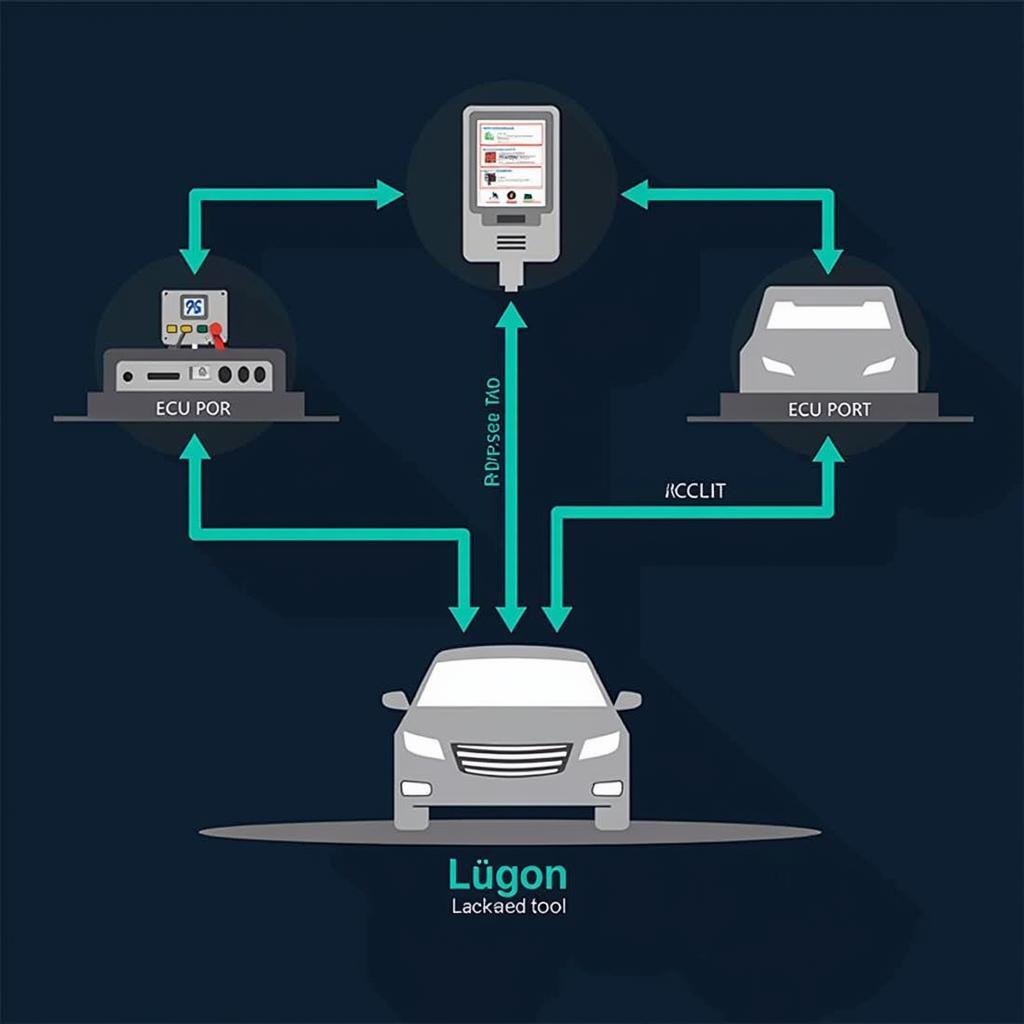 Diagnostic Tool RPC Connection to Vehicle
Diagnostic Tool RPC Connection to Vehicle
Choosing the Right Diagnostic Tools RPC
Selecting the right diagnostic tool for your needs is crucial. Consider factors like vehicle compatibility, software features, and budget. Some tools specialize in specific makes and models, while others offer broader coverage. Researching different brands and models can help you identify the best fit for your workshop. Don’t hesitate to consult reviews and compare features before making a decision.
Common Applications of Diagnostic Tools RPC
Diagnostic tools RPC are versatile and applicable to a wide range of vehicle systems, including:
- Engine Management: Diagnose and resolve engine performance issues.
- Transmission Control: Troubleshoot transmission problems and monitor performance.
- ABS and Stability Control: Analyze and repair braking and stability systems.
- Airbag Systems: Diagnose and fix airbag malfunctions.
- Climate Control: Troubleshoot and repair climate control system issues.
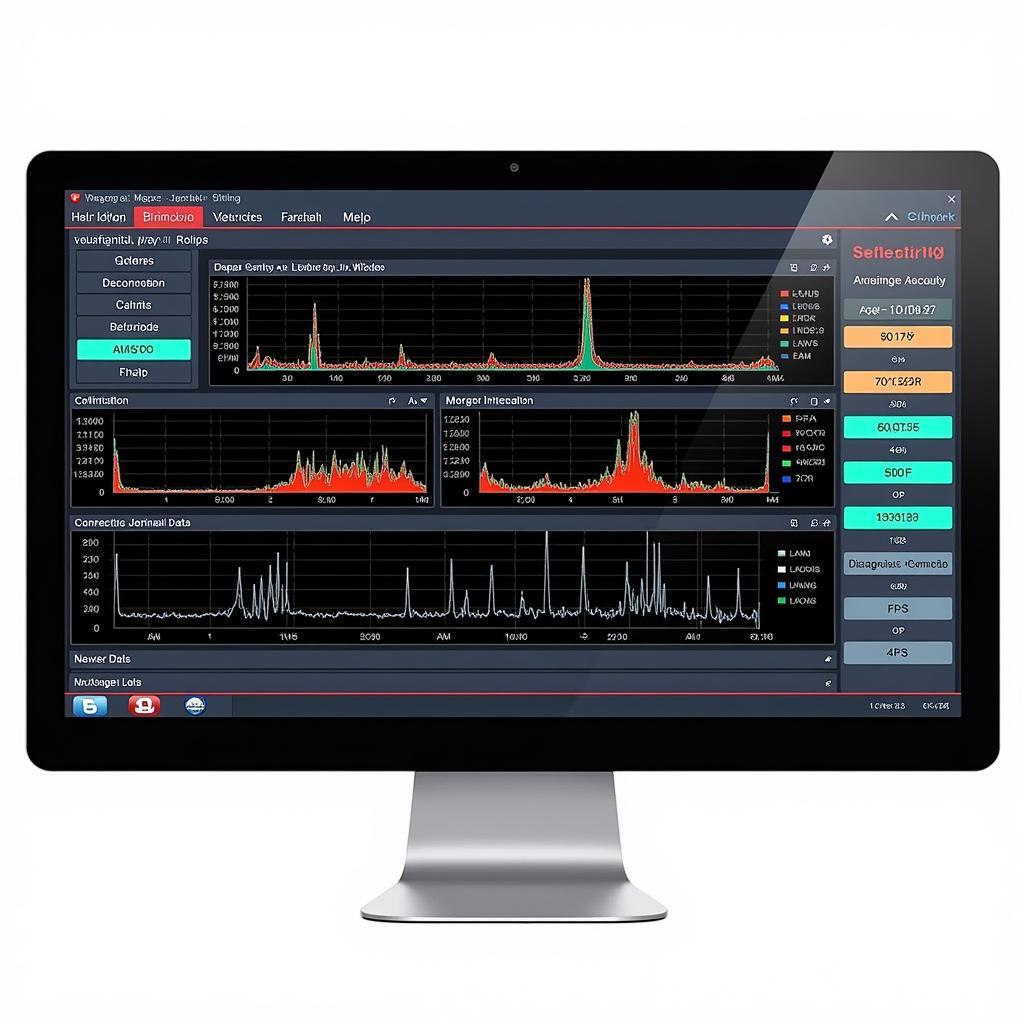 Diagnostic Tool RPC Software Interface
Diagnostic Tool RPC Software Interface
Troubleshooting Common Issues with Diagnostic Tools RPC
Occasionally, you might encounter issues when using diagnostic tools RPC. Here are some common problems and their solutions:
- Connection Problems: Ensure the tool is properly connected to the vehicle’s OBD-II port and that the ignition is on.
- Software Issues: Make sure your diagnostic software is up to date.
- Compatibility Problems: Verify that your tool is compatible with the vehicle’s make and model.
If you continue to experience problems, consult the tool’s documentation or contact the manufacturer for support.
Expert Insights on Diagnostic Tools RPC
“Investing in high-quality diagnostic tools RPC is no longer a luxury, but a necessity for modern automotive repair shops,” says Robert Johnson, Senior Automotive Engineer at AutoTech Solutions. “These tools dramatically improve diagnostic efficiency and enable technicians to deliver higher-quality repairs.”
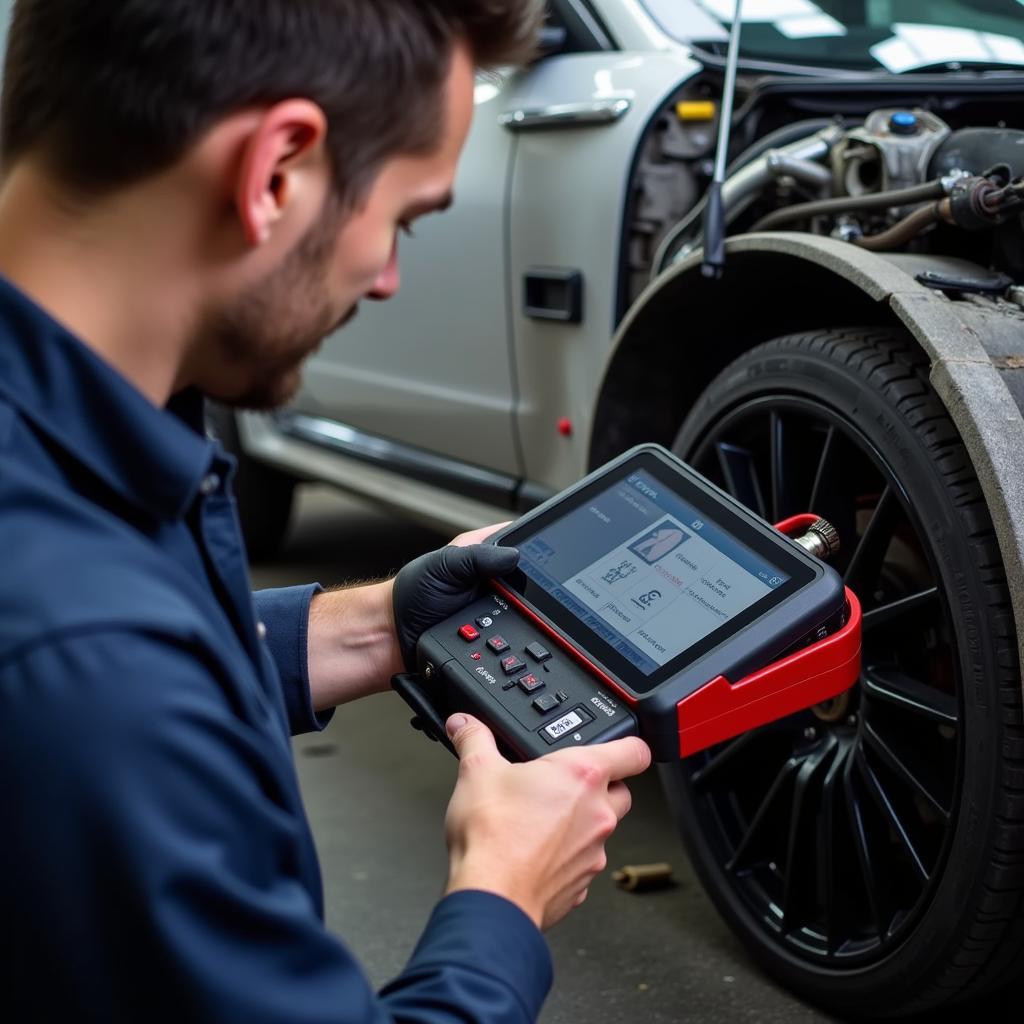 Mechanic Using Diagnostic Tool RPC
Mechanic Using Diagnostic Tool RPC
“Diagnostic tools RPC empower technicians to delve deeper into vehicle systems,” adds Susan Miller, Lead Diagnostic Technician at Advanced Auto Diagnostics. “They provide a level of insight that was previously unattainable, leading to more accurate diagnoses and faster repairs.”
Conclusion
Diagnostic tools RPC are transforming the automotive repair industry, offering enhanced accuracy, efficiency, and functionality. By understanding their capabilities and choosing the right tool for your needs, you can significantly improve your diagnostic workflow and deliver higher-quality repairs to your customers. Ready to upgrade your diagnostic capabilities? Connect with us at ScanToolUS for expert advice and support. Call us at +1 (641) 206-8880 or visit our office at 1615 S Laramie Ave, Cicero, IL 60804, USA.
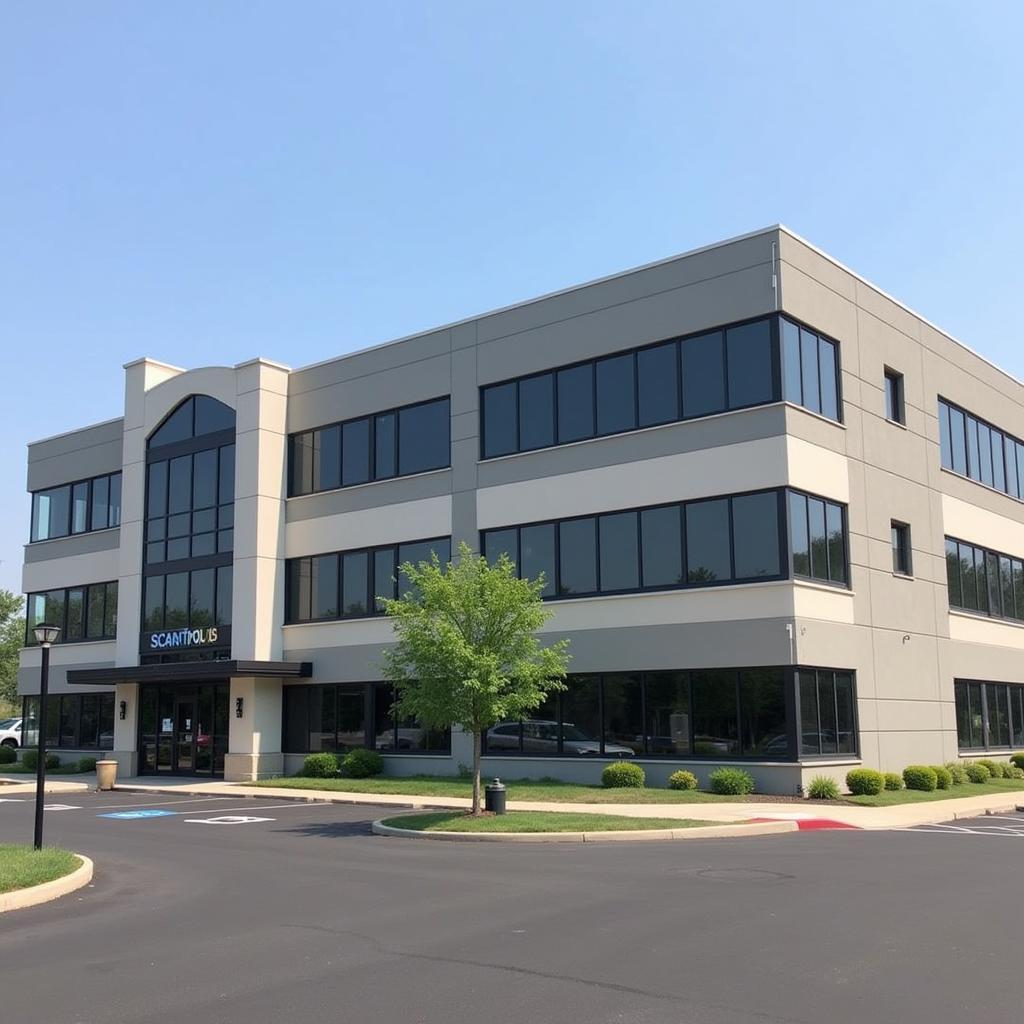 ScanToolUS Office in Cicero, IL
ScanToolUS Office in Cicero, IL
FAQ
- What is RPC in automotive diagnostics? RPC stands for Remote Procedure Call, allowing two-way communication between the diagnostic tool and the car’s computer.
- Why are diagnostic tools RPC important? They enable more accurate diagnoses and faster repairs.
- How do I choose the right diagnostic tool RPC? Consider vehicle compatibility, software features, and your budget.
- What are some common applications of diagnostic tools RPC? Engine management, transmission control, ABS, airbags, and climate control.
- Where can I get support for my diagnostic tool RPC? Contact the manufacturer or a specialized automotive tool supplier.
- Are diagnostic tools RPC expensive? Prices vary depending on features and capabilities.
- Can I use diagnostic tools RPC on all car makes and models? Compatibility varies; check the tool’s specifications.

